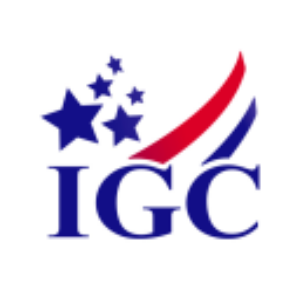IGC Pharma Breakthrough: Preclinical Trial Data Shows TGR-63 Reduces Plaque in Alzheimer’s
Paving the way for a potential Alzheimer’s drug
A key pathological marker of Alzheimer’s disease is the formation of abnormal clusters of protein fragments called amyloid-beta (Aβ) that deposit as Aβ plaque between neurons in the brain and contribute to cognitive decline and memory loss. The two drugs approved by the FDA, Aducanumab and Lecanemab, aim to clear Aβ plaque from the brain as part of a therapeutic approach focused on modifying the course of the disease.
TGR-63 is a patent pending molecule designed to disrupt the structure of Aβ plaque aggregation by disrupting intermolecular interactions and destabilizing their assembly. Studies in Alzheimer’s cell line have confirmed TGR-63's potency in alleviating Aβ plaque burden. As a result, large clusters of plaque fail to form, potentially stifling the progression of Alzheimer's Disease. TGR-63’s potential as an Alzheimer’s therapeutic was further corroborated in a genetically modified mouse model mimicking Alzheimer’s amyloid pathology. In that trial, the group treated with TGR-63, compared to the vehicle-treated group, showed a
Ram Mukunda, CEO of IGC Pharma, highlights the significance of TGR-63, saying, "The FDA's recent approval of innovative drugs like Aducanumab and Lecanemab underscores the profound impact of targeting plaque formation in Alzheimer's. TGR-63 aligns with this visionary approach, rekindling hope, and tangible progress in our fight against this neurodegenerative disease. TGR-63 is a potential Alzheimer’s drug in the standard preclinical methodologies, first in Alzheimer’s cell lines, then in amyloid animal models, and finally with its ability to penetrate the blood-brain barrier.”
The Company is currently advancing IGC-AD1, a CB1 receptor partial agonist, through a Phase 2b trial aimed at alleviating agitation in dementia due to Alzheimer’s Disease. This trial spans twelve sites across the
About IGC Pharma Inc. (dba IGC):
IGC Pharma is pursuing innovative solutions to fight Alzheimer’s disease and related challenges. IGC Pharma’s portfolio comprises five assets, all with a singular mission - to transform the landscape of Alzheimer's treatment. IGC-AD1 and LMP target neuroinflammation, Aβ plaques, and neurofibrillary tangles. IGC-AD1 is currently in a Phase 2b clinical trial for agitation in dementia due to Alzheimer's (clinicaltrials.gov, NCT05543681). TGR-63 targets Aβ plaque to disrupt the progression of Alzheimer's disease. IGC-M3 targets the inhibition of Aβ plaque aggregation with the potential to create a profound impact on early-stage Alzheimer’s. IGC-1C targets tau and neurofibrillary tangles as a forward-thinking approach to Alzheimer's therapy. In parallel, IGC Pharma is at the forefront of Generative AI development, with projects including clinical trials, early detection of Alzheimer’s, and drug interaction with cannabinoids.
Forward-Looking Statements:
This press release contains forward-looking statements. These forward-looking statements are mainly based on IGC Pharma’s expectations and are subject to several risks and uncertainties, certain of which are beyond IGC Pharma’s control. Actual results could differ materially from these forward-looking statements as a result of, among other factors, the Company’s failure or inability to commercialize one or more of the Company’s products or technologies, including the products or formulations described in this release, or failure to obtain regulatory approval for the products or formulations, where required, or government regulations affecting AI or the AI algorithms not working as intended or producing accurate predictions; general economic conditions that are less favorable than expected; the FDA’s general position regarding cannabis- and hemp-based products; and other factors, many of which are discussed in IGC Pharma’s
View source version on businesswire.com: https://www.businesswire.com/news/home/20240123339435/en/
Investors
IMS Investor Relations
Walter Frank
igc@imsinvestorrelations.com
(203) 972-9200
Media
JVPRNY
Janet Vasquez
jvasquez@jvprny.com
(212) 645-5498
Source: IGC Pharma, Inc.







